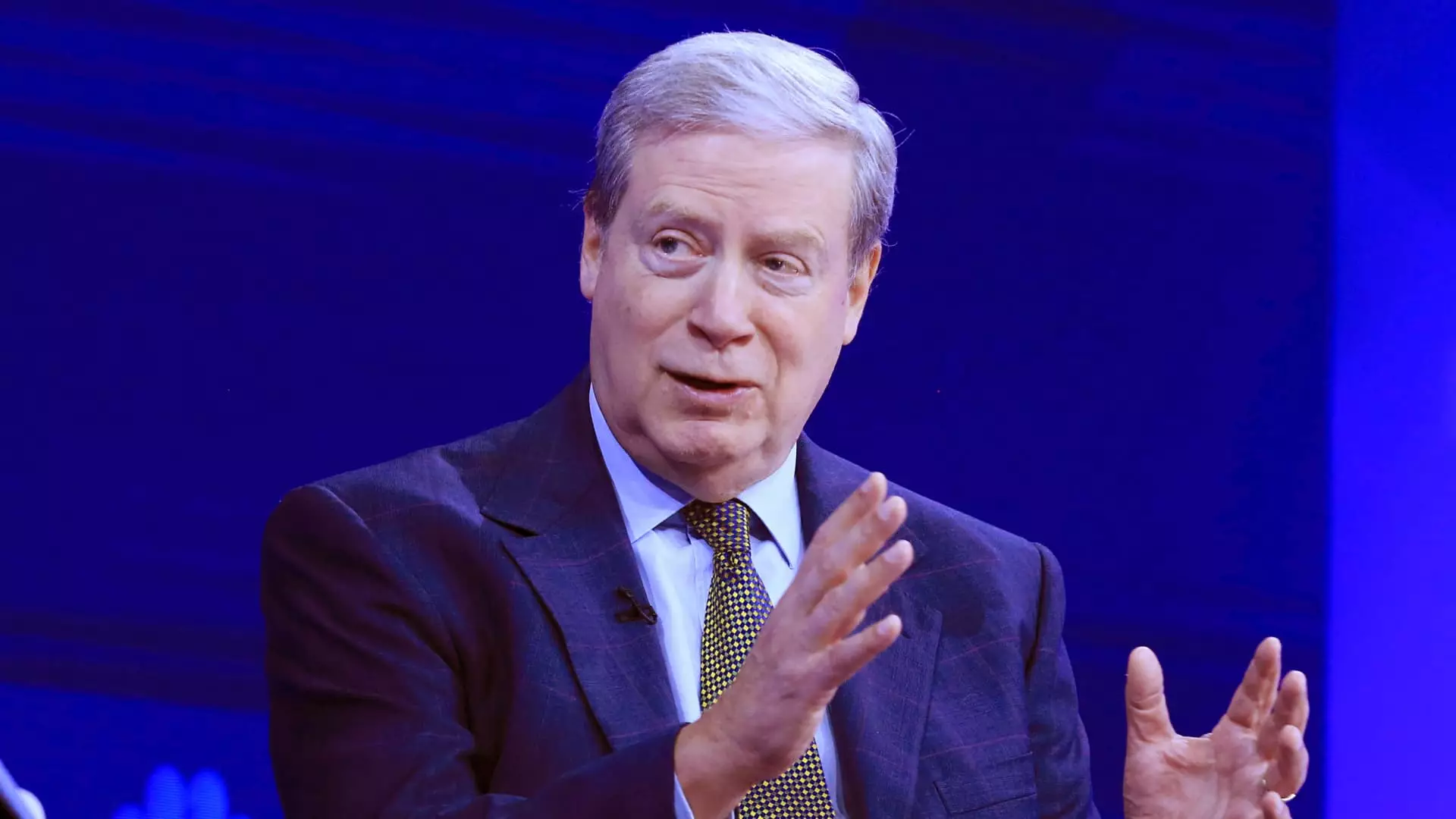The landscape of the financial market is often influenced by political events, and the re-election of Donald Trump has sparked a wave of optimism that billionaire investor Stanley Druckenmiller describes as a renewed surge of “speculative enthusiasm.” Drawing from nearly five decades of experience in investment, Druckenmiller provides a unique perspective on the contrasting approaches to business that have characterized recent administrations. The transition from what he terms an “anti-business” environment to one that appears markedly more benevolent has left many corporate executives feeling a mix of relief and exuberance. This backdrop lends itself to what he refers to as “animal spirits,” a term that encapsulates the emotions driving consumer and investment behaviors.
Investors often look to the sentiment of business leaders for cues about economic trajectories. Druckenmiller’s conversations with CEOs have revealed a sense of optimism rarely seen in recent years. The excitement among corporate leaders suggests that the policies promised or enacted under Trump have paved the way for a more favorable business climate, fostering an environment where investment and growth can flourish. Such enthusiasm is crucial for economic recovery and expansion, especially in a post-pandemic world where many sectors require revitalization.
Despite his overall buoyancy regarding the economy, Druckenmiller approaches the stock market with a sense of caution. Central to his wariness are the elevated bond yields that accompany a strong economic outlook. While the stock market has seen substantial gains—evidenced by the S&P 500’s impressive rise—this bullish momentum could encounter headwinds from significant fluctuations in the bond market. Druckenmiller articulated the dichotomy facing investors: on one hand, a robust economy that traditionally fuels stock prices, and on the other, rising yields that tend to put downward pressure on equity valuations.
His strategy involves maintaining a short position on Treasurys, which is effectively a bet against bond prices. This approach highlights a foundational principle of investing: the consideration of risk versus reward. The complexity of current market conditions, as identified by Druckenmiller, serves as a reminder that while optimism can drive markets upward, inherent risks must be carefully analyzed to avoid significant losses.
In navigating this complex investment landscape, Druckenmiller emphasizes the importance of focusing on individual stocks over broader market trends. He suggests that technological advancements, particularly in artificial intelligence, will play a pivotal role in shaping the future of certain industries. Companies that successfully leverage AI to decrease operational costs and enhance productivity are poised for impressive growth. This perspective aligns with overarching trends that favor innovation and technology, as evidenced by the remarkable performance of tech stocks in recent years.
However, Druckenmiller remains cautious about revealing specific investments, having recently divested positions in well-known tech giants like Nvidia and Microsoft. The decision to step back from these stocks might indicate an evolving strategy that relies on deeper analysis rather than sheer market momentum.
Concerns regarding potential trade tariffs and their inflationary effects are also pivotal in Druckenmiller’s analysis. He suggests that the revenue generated from tariffs could play a role in addressing the country’s fiscal challenges. The perception of tariffs as a consumption tax that is largely shouldered by foreign entities may temper fears about inflation, provided that rates remain within a manageable range. However, he acknowledges the risk of retaliatory measures from trading partners, which could complicate this balance.
As Trump’s administration hints at implementing graduated tariffs, the financial community watches with bated breath. The timing of these measures and the response from global markets will significantly impact economic momentum. Investors are beguiled by the potential implications of these policies, which could either bolster national revenues or provoke adverse reactions that thwart the ongoing market rally.
Stanley Druckenmiller has long been recognized for his discernible acumen in predicting market movements, having gained fame through his successful investment strategies, including a historic bet against the British pound. Today, his insights reflect a blend of historical wisdom and contemporary analysis that resonates with investors navigating a turbulent economic landscape. As he continues to dissect the intricacies of market dynamics influenced by politics, his perspectives offer invaluable guidance in an era where uncertainty is the only certainty.
In sum, while the euphoria surrounding Trump’s re-election is palpable, it necessitates careful consideration of the multifaceted realities that could shape market outcomes in the months and years to come.

